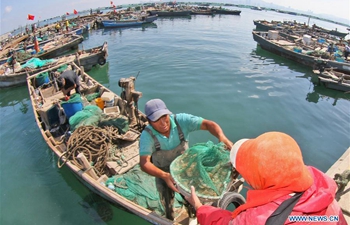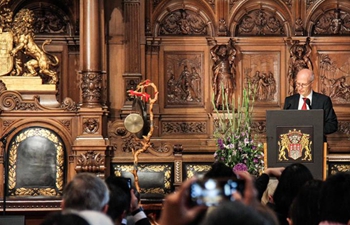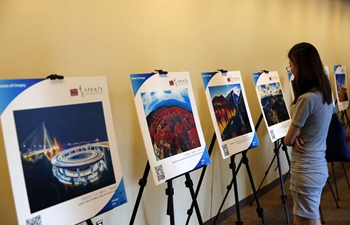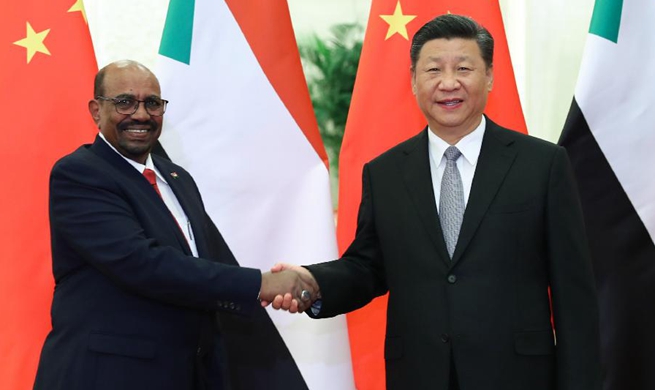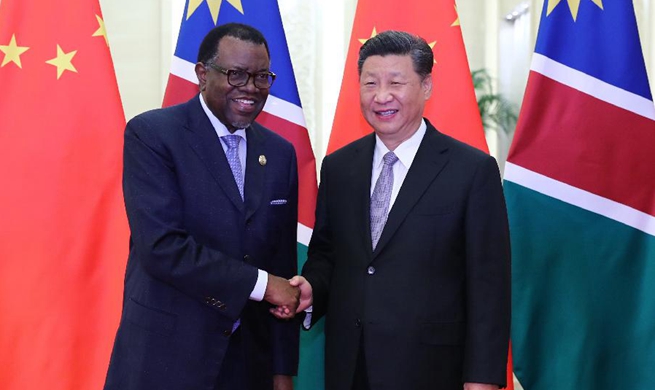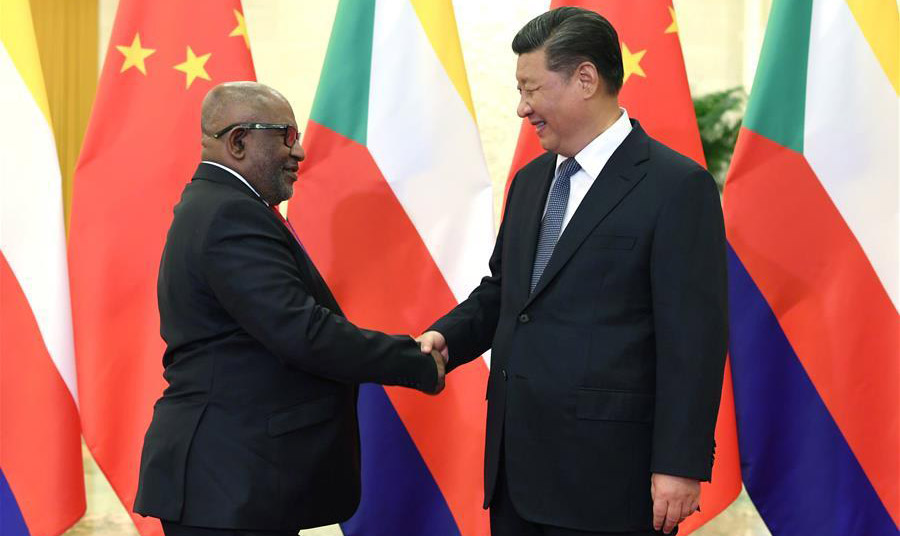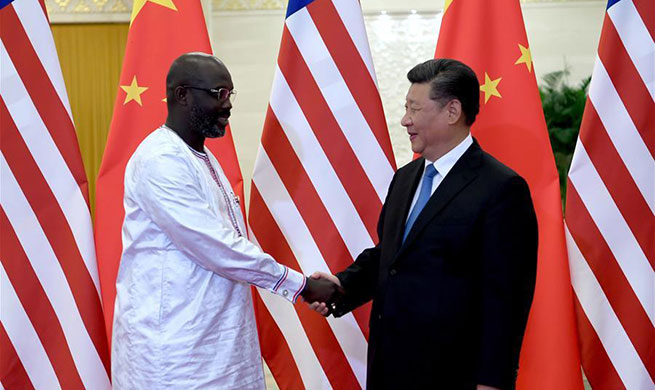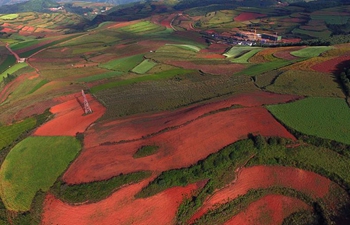By Xinhua writers Cao Kai, Wang Xiaopeng and Li Wei
WUHAN, Sept. 2 (Xinhua) -- If not for the arrival of Chinese scientists, Meshack Mutevu would still be living in a house with a metal roof and mud walls like his forefathers, subsisting on a few mango trees and raising goats.
The life of the 44-year-old Kenyan began to change when scientists from the Sino-Africa Joint Research Center (SAJOREC) with the Chinese Academy of Sciences (CAS) discovered that the local moringa was rich in selenium and had great market potential due to its health benefits after a farm produce investigation in 2015.
In partnership with SAJOREC, Botanic Diamond, a Kenya-based company run by Chinese, offered free seeds and technical guidance to local residents and procured the moringa after it was harvested.
Mutevu planted over 200 moringa trees, which earned him an annual income of more than 10,000 U.S. dollars, and enabled him to build a 400-square-meter villa in just two years.
"Sino-Africa cooperation should not stay in laboratories and academic papers," said Wang Qingfeng, director of SAJOREC. "The fundamental research should be integrated into local situations."
Wang said the center has transformed a number of Kenyan plants, including baobab and toothbrush trees, into medicinal teas, essential oils, and toothpaste, adding that many Kenyan farmers can lift themselves out of poverty by planting these plants.
"The combination of the CAS's advantages in technology and private companies' grasp of the market will benefit more ordinary Kenyan households," said Cui Chaojie, chairman of Botanic Diamond, which has developed 15 products out of 11 Kenyan plants.
Cui said he plans to visit Shanghai in November to attend the China International Import Expo, trying to tap the lucrative Chinese market with quality African products.
Since its establishment in 2013, SAJOREC has put forward more than 45 joint research programs focusing on biodiversity investigation, pathogenic microorganism detection, geographic science and remote sensing, high-yield crop cultivation demonstration as well as land and water resources management.
"The fact that China has managed to lift millions of its citizens out of poverty in an unprecedented time frame using improved agricultural, scientific and technological approaches is a clear indication that there is room for close cooperation between China and Africa for the improvement of African lives," said Gituru Robert Wahiti, co-director of SAJOREC.
To ease food shortages in Africa, SAJOREC has been introducing Chinese crop varieties into Africa. Trial plantings of wheat, rice, corn, sweet sorghum and grapes in Kenya, Ethiopia, Uganda and other countries have shown promising results.
In order to help solve the issues of drought and water pollution which hinders the economic development of African countries, SAJOREC's scientists have completed an investigation and assessment of the water quality in Tanzanian cities.
They are also preparing a project on sustainable usage and management of key water towers in Kenya to create a national report on the sanitation management and sustainable usage of the country's drinking water.
"Teaching one to fish is better than giving him fish. China has been helping African countries to improve their self-development capabilities as a new way of aid," said Li Yin, deputy head of the CAS International Cooperation Department.
Teresiah Muciku Mungai, a doctoral student currently studying at the CAS Wuhan Botanical Garden, is researching soil samples taken back from Kenyan residential compounds, schools and public spaces with the state-of-the-art equipment in the laboratory.
"We should learn from China's experiences and also lessons in economic development and environmental protection," said the 27-year-old Kenyan.
The technology cooperation between China and African counties is green and sustainable and will create new room for future cooperation, said Liu Hongwu, head of the African Studies Institute of Zhejiang Normal University.
Liu called for more policies and financial incentives to encourage Chinese universities and scientific institutions to undertake technology cooperation in Africa.
